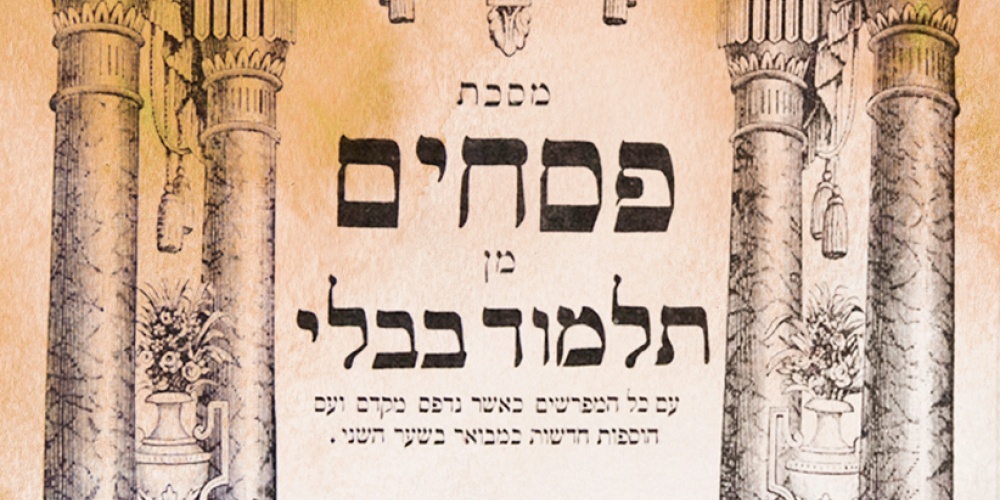
One of the requirements our Talmudic Sages set for the receiving of semicha, rabbinic ordination, was the ability to speak clearly (Sanhedrin 5b). We are all familiar with brilliant people who are very poor teachers, unable to clearly explain complex matters to their students. While they may make great contributions to their respective fields, they are not the ones meant to teach others. Torah is no different. It is much more important to have as a rabbi one who can explain things clearly than a greater Torah scholar whose teachings are hard to follow. With modern-day semicha functionally meant as a teacher’s licence[1], only those who speak clearly should be given the title of “Rabbi”[2].
“A person should always teach his student in a concise manner” (Pesachim 3b), or to use a more modern aphorism, “less is more”. If one can say something in two sentences there is no need to use five, or even three. This principle, important as it is, at times comes in conflict with another teaching of our Sages that “A person should always speak using clean language” (Pesachim 3a). Thus, Noach is commanded to bring to the ark “animals asher eineno tehora, that are not pure”, as opposed to bringing tameh, impure animals.
The Tashbetz, Rav Shimon ben Zemach Duran, notes that he heard—quoted in the name of “the Rabbanit, the wife of Rav Yosef”—that the obligation to teach in concise language refers specifically to a teacher. Students can only take in so much, and long-winded teachings are liable to get one tuned out. It is best to be clear and concise. There is no need to explain every nuance and detail; doing so runs the risk of the students not even understanding the basics.
But a student need not be constrained by brevity. Often it is difficult for students to fully express and explain themselves, and asking them to be overly concise runs the risk of not enabling the student to share their full thoughts. Furthermore, the Rabbanit explains that while verbose teaching may have a negative impact on students, such is not the case regarding teachers. They have (and if not, perhaps they are in the wrong field) the patience and ability to focus even on long-winded answers.
Rather than worrying about being concise, the focus of the student should be on speaking in the most refined language possible. As an example, the Talmud explains that instead of asking why olives (unlike grapes) may be harvested in a state of ritual impurity, one should ask why one may harvest olives when one is not in a state of purity. While this may seem to be an insignificant difference, Hillel thought differently, exclaiming that he was certain that the student who avoided letting the word “impurity” emanate from his lips would one day become a great teacher in Israel. (How fortunate we would be if the most unclean language we would hear would be the word tameh, impure!) A leader must measure each and every word, balancing the need for brevity and sensitivity, careful to avoid even the most minor indiscretion. It is not uncommon for a small slip of the tongue to end a career. It is that little extra sensitivity that is the trait of the great leader.
A second aspect of the sensitivity of a student towards their teacher, one with halachic implications, arises from a discussion of bitul chametz, the declaration nullifying one’s chametz[3]. With the prohibition of owning chametz, ba’al yera’eh and ba’al yematze, beginning at midday on erev Pesach, one must ensure bitul takes place beforehand. After that time, one who remains in possession of chametz not only violates ba’al yera’eh and ba’al yematzei, they can no longer even nullify it. The only way to stop the ongoing prohibition is by destroying the chametz.
The Gemara then quotes a Braitta which seems to indicate otherwise: “If one were sitting in the Beit Midrash, the study hall, and he remembered that there is leavened bread in his house, he should render it null and void in his heart, both on Shabbat and on Yom Tov” (Pesachim 7a). While Shabbat may refer to the Shabbat of erev Pesach (something we can look forward to in 2021), the fact that one may nullify chametz on Yom Tov would indicate that one may nullify chametz even on Pesach itself. To this, the Gemara responds that this is no refutation. We are dealing with a student studying with his teacher on Yom Tov. The “chametz” referred to is not yet actually chametz. Rather, the student remembers that he has kneaded dough at home, which left unattended will soon become chametz. To avoid this possibility, the student nullifies the “chametz” while it is still unleavened dough. But had it actually become chametz, nullification would not absolve him from the prohibition of ba’al yera’eh and ba’al yematze.
Left unexplained is why the student does not go home and bake the dough before it leavens. By staying in the Beit Midrash, the student ensures that the dough will definitely turn into chametz! While doing bitul from the Beit Midrash will avoid the technical problem of ba’al yera’eh and ba’al yematzei, considering the seriousness with which we take chametz, surely one ought to go home and deal with the dough the second he remembers it. The opening Mishna of the masechet teaches that even with bitul, we must search and rid our home of chametz lest one come to accidentally eat it. Jewish law demands that we do bedikah immediately at nightfall, not even delaying to learn Torah. And unlike rising dough on erev Pesach, nothing so terrible will happen if one delays the bedikah the night before for an hour or two. How can this student be allowed to stay in the Beit Midrash?
The Gemara does not address this issue because the answer is obvious. Chametz or no chametz, one does not walk out in the middle of a shiur, lesson, of one’s teacher. We do not schedule a shiur for the night of the 14th but to walk out of a shiur—even on erev Pesach, with dough rising at home—was inconceivable to our Talmudic Sages. Bitul chametz will do just fine.
“Rav Giddel said in the name of Rav: Any Torah scholar who sits before his teacher, and his lips are not dripping with bitterness [due to the awe and reverence due to his teacher], those lips shall be burnt” (Shabbat 30b).
No doubt the student-teacher relationship has changed over the years. But the values underlying this discussion are timeless.
[1] This as opposed to the original semicha, dating back to Moshe Rabbeinu, which entitled one to be a member of the Sanhedrin, allowing one to offer new interpretations of Biblical texts that would have the force of law.
[2] Sadly, too many today dismiss developing oratorical skills as unnecessary or even as wasted energy that would be better spent “actually learning“ Torah. We have recently lost two of the greatest orators of our times, Rabbi Dr. Norman Lamm and Rabbi Lord Jonathan Sacks. It is no coincidence that they were amongst the most successful and influential Jewish leaders. And those who had the privilege of having heard Rav Soloveitchik speak can attest how inspiring great oratory can be. And Torah is meant to be inspiring.
[3] The discussion of clean language arose as a result of the opening Mishna of the masechet using the term Or, light, to refer to night, as in Or learba assar, on the night of the 14th [of Nissan], one checks for chametz. Even the use of the word “night” was to be avoided, especially in an era when going out alone at night was the symbol of a shoteh, a fool, who was thus exempt from mitzvot (Chagigah 3b).



